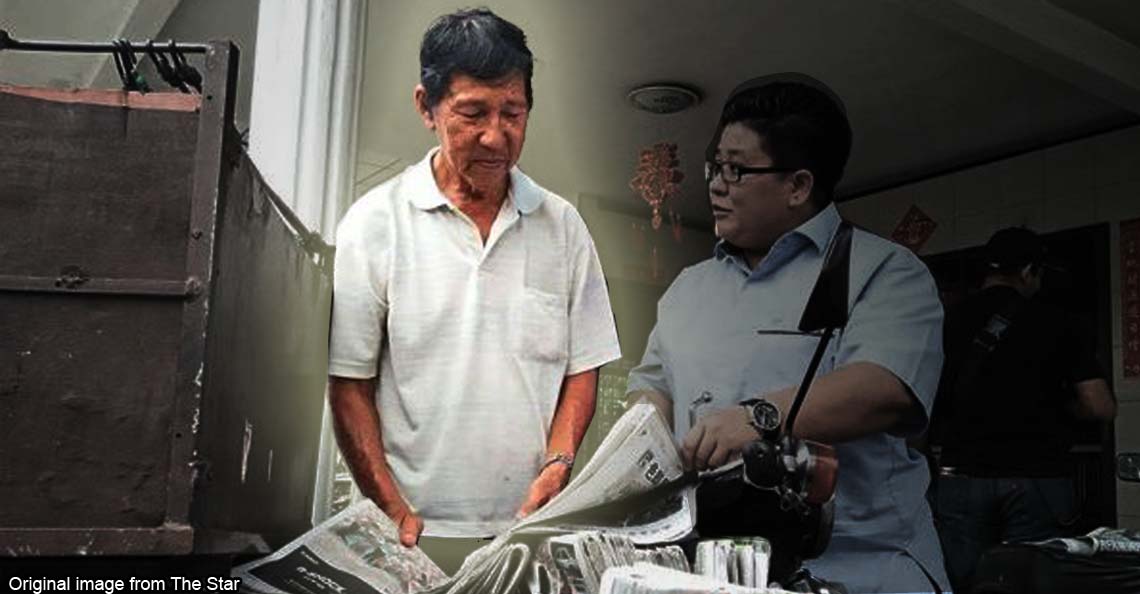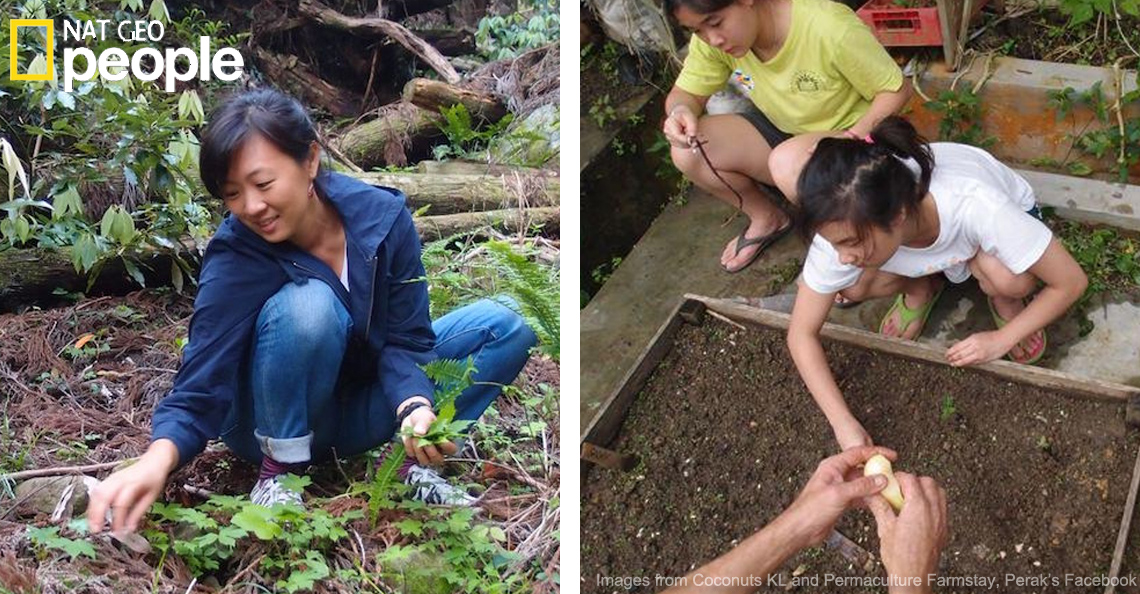Here’s how the eviction of Kanthan farmers in Perak escalated to assault
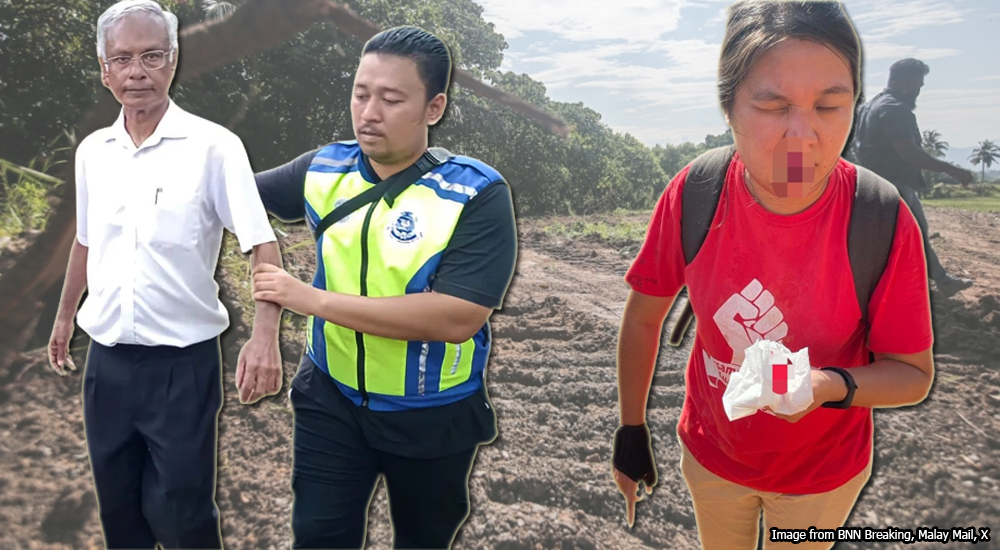
- 106Shares
- Facebook88
- Twitter4
- LinkedIn4
- Email4
- WhatsApp6
TW: depiction of violence and bloody injuries
Last week, a bit of drama broke out at a farm in Kanthan, Perak. Some of you may have seen a video circulating on social media, where a woman was shoved to the ground. It’s a rough scene so if you get queasy at the sight of blood, you might wanna skip it.
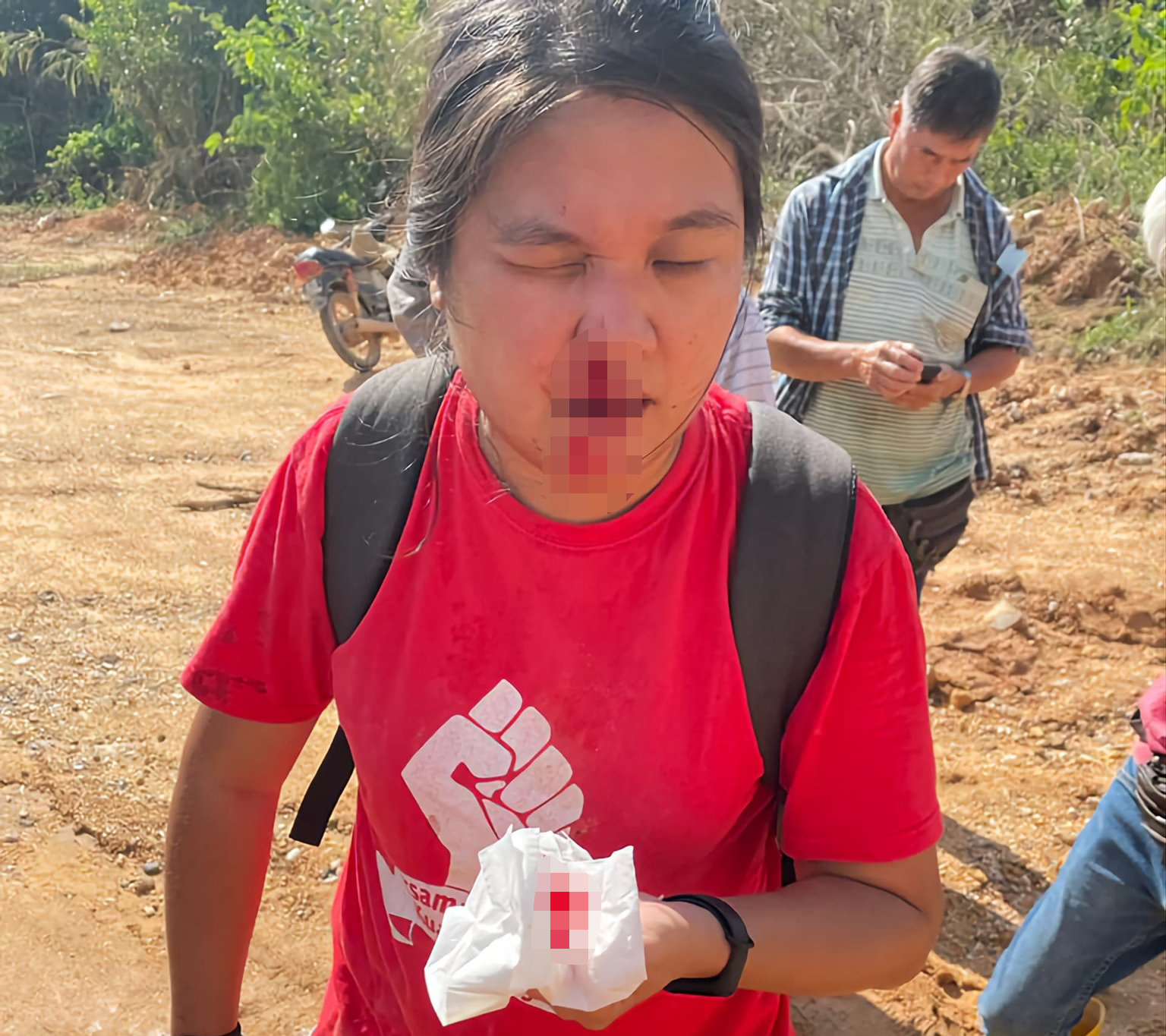
The fall broke her teeth and she suffered some injuries to her face, but her identity is perhaps the most curious thing here– because Chong Yee Shan is an activist from Parti Sosialis Malaysia (PSM). Meanwhile, the guy who pushed her is an officer at the Perak Land and Mines Office (PTG Perak). Certainly not the kind of people you’d expect to be caught in a brawl, kan?
And the plot thickens once you find out why they were there in the first place. You see, 6 farmers from Kanthan were abruptly served an eviction notice to leave their farmlands. Before they knew it, officers swept in, wrecked their crops, arrested anyone who resisted, and basically shooed the farmers out of their homes. Chong Yee Shan was there with her fellow PSM activists to protest the eviction. But in all the commotion, things got out of hand and she ended up hurt.
At this point, you probably have several questions running through your head. Eviction notice? Protests? PSM? How did things escalate to this point? Well, it all boils down to one key point…
The Kanthan farmers may have been farming the land for decades… but they don’t actually own it
About 80 years ago during our good ol’ colonial days, the Mat Sallehs were the ones who initially permitted the farmers to cultivate the Kanthan land. After gaining independence, the Malaysian government officially acknowledged this permission. To be clear though, it’s not that this land was given to the farmers, they were merely allowed to till away. The land was, and still is, the property of the state government, specifically, the Perak State Development Corperation (PKNP).

The thing is, we don’t know how long this permission is meant to last— whether it was a contract of several years, or if it was something without a deadline. It’s also possible that the state government was simply leasing the land until they needed it back for other uses. With all these uncertainties, we got in touch with PKNP to clarify the details, but as you guys might guess, they were about as helpful as a leaking watering can. Honestly, not a surprise considering our past experiment with contacting local gov offices.
But something happened in 2012 to turn these murky waters even murkier. You see, PKNP had a new project in mind that would require the farmlands to be developed. They assured the farmers that they’d be moved to a different area, offering them 2 acres of land with a 30-year lease at an annual rate of RM80.
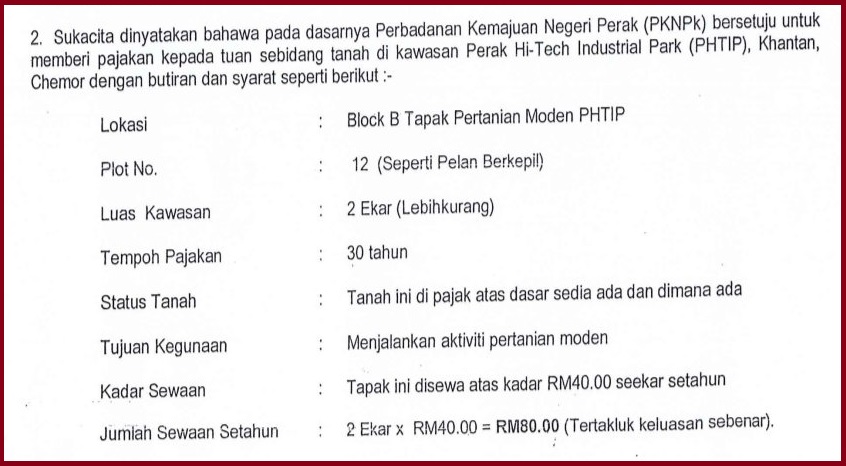
But then the project got cancelled, and that different area was never brought up again, so the farmers simply remained where they were… except, they’d stopped paying rent. According to the farmers, this arrangement had been discussed and approved by all parties.
For a while, things seemed to be pretty quiet, that was until…
The Perak state government accused the farmers of squatting
Now as you can tell, there’s been a lot of ‘he said, she said’ moments so far, with one of the central issues being the matter of rent. It’s worth noting that by not paying rent, and without documented proof of their claims, the farmers were technically squatting on state land. Squatting is basically when a person occupies someone else’s property without:
- any valid claims to the legal rights of the land
- any monetary payment to the owner of the land
- permission from the owner of the land
In some countries, squatters have rights, especially if they’ve been occupying the land for a long time, but in Malaysia, it’s totally illegal. If there’s one thing we can say for certain, it’s that the land does indeed belong to PKNP. And as per Section 425 of the National Land Code, in which occupying state land without proper authority is a crime, PKNP are entirely within their rights to evict the farmers.
Legalities aside though, what got a lot of people concerned about this whole situation was the way it was handled. And by that we mean…
The officers were unnecessarily harsh during the eviction process
To say the trees were violently uprooted is a bit of an understatement (though that did also happen). Imagine having the government storm in through your front door, rip apart the livelihood that you, your father and your grandfather had built brick by brick, then treat you like a criminal when you’re trying to defend your home…
Most of these farmers had been farming the Kanthan land for generations, so to have all their hard work destroyed right in front of their eyes can be heartbreaking.
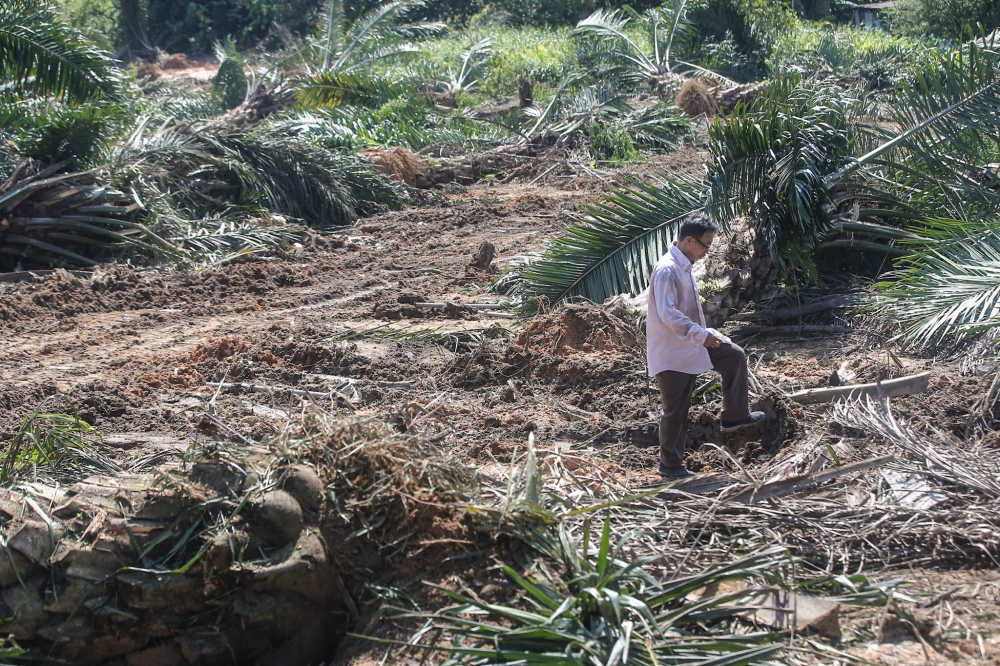
But it’s important to note that this came after the farmers had allegedly refused an alternate location. The state government had in fact offered to move the farmers to Changkat Kinding. That offer was turned down, since the area wasn’t suitable for farming.
“The land is on a hill and the soil is filled with rocks. The earth is not suitable for vegetable or fruit farming,” — Farmer Liew, via Malaymail
As of now, the case has gone to the Ipoh High Court. During this period, the eviction process will be on hold until the case is reviewed. The Perak state government has also said that they’re hoping to resolve things with the farmers, so fingers crossed it ends well on both sides.
…though the same can’t be said for those poor vegetables 🙁
- 106Shares
- Facebook88
- Twitter4
- LinkedIn4
- Email4
- WhatsApp6

